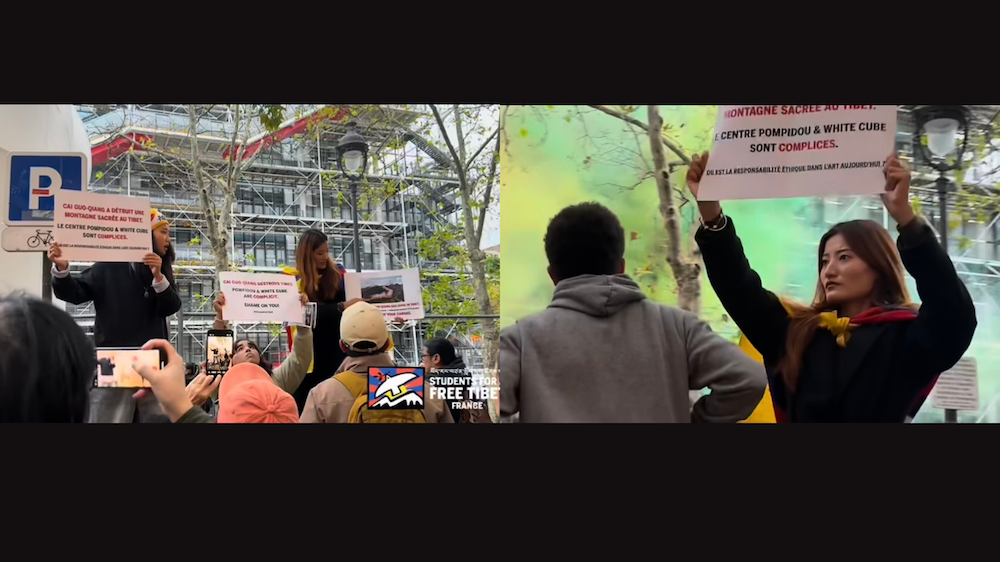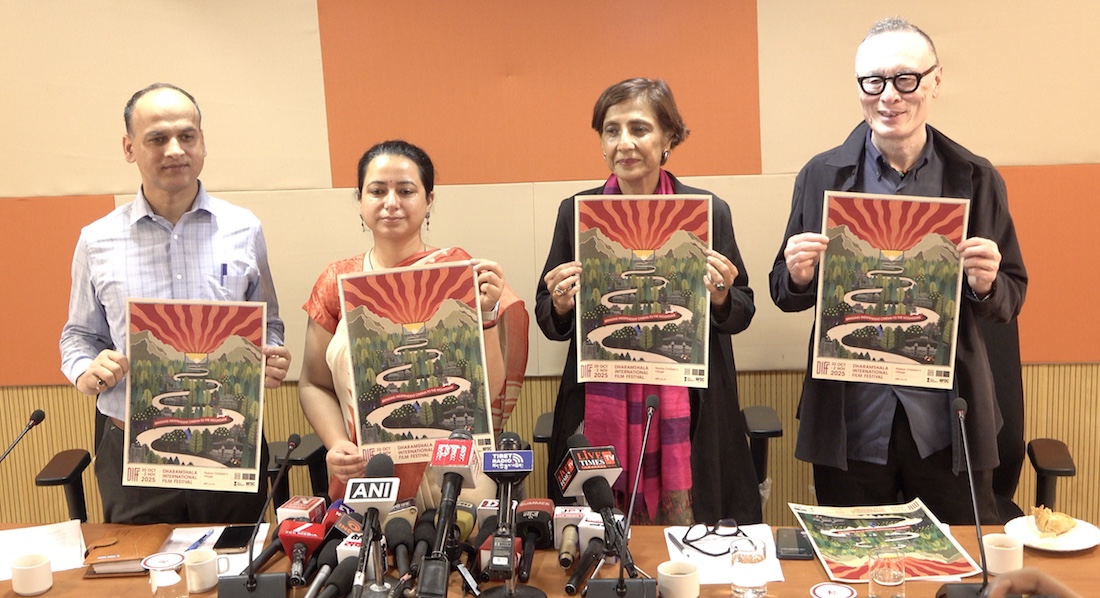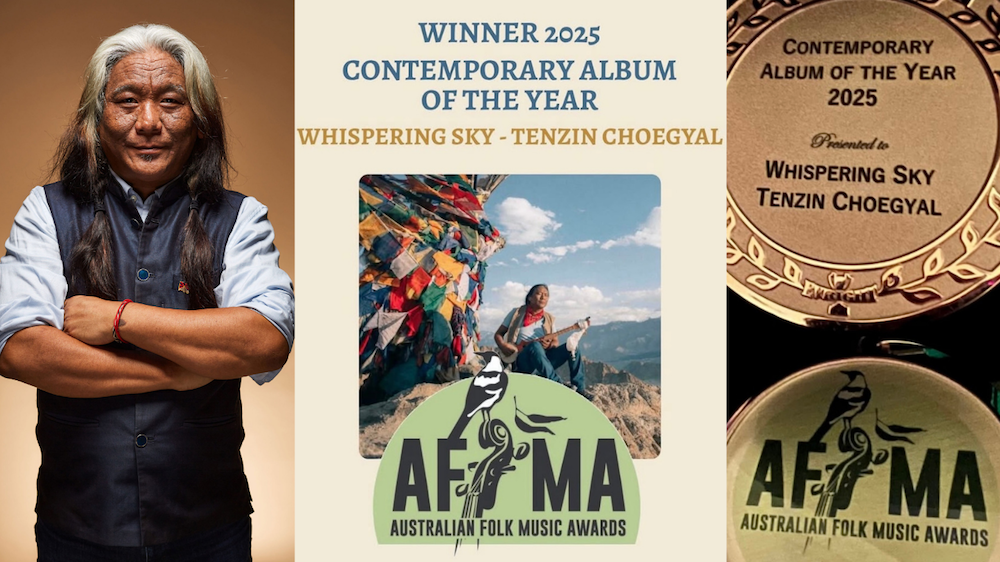By Tenzin Dharpo
 DHARAMSHALA, Sept 17: The much awaited Tibetan film Pawo (Hero in tib.) premiered in India on Friday at the 7th Tibet Film Festival amid a receptive Dharamshala crowd which was moved almost incessantly with the emotions and questions the 117 minute Indo-German film demanded throughout.
DHARAMSHALA, Sept 17: The much awaited Tibetan film Pawo (Hero in tib.) premiered in India on Friday at the 7th Tibet Film Festival amid a receptive Dharamshala crowd which was moved almost incessantly with the emotions and questions the 117 minute Indo-German film demanded throughout.
The opening night of the three day film (16-18 Sept) festival was also conducted simultaneously in Zurich, Switzerland where the festival originally began in 2009. The venture, Wangpo Tethong, a member of the organizing committee, said, was inspired after Tibetan activist Dhondup Wangchen, novice to ways of film making, created an amateur documentary prior to the 2008 Beijing Olympics portraying sentiments of common Tibetans. “The TFF platform aspires to avail a platform for expression from all walks of Tibetan life and the struggle through film. We are motivated to involve young Tibetans to adopt filmmaking as a medium of expression and to highlight Tibet’s cause,” Wangpo said.
 The Tibetan Prime Minister Lobsang Sangay attended the screening as the Chief Guest. Sangay, on asked about his favourite film, said Mel Gibson starrer ‘Brave Heart’and ‘Gandhi’ were films that he can watch repeatedly. He also expressed happiness at more and more young Tibetans entering the world of cinema which he said is a very powerful medium.
The Tibetan Prime Minister Lobsang Sangay attended the screening as the Chief Guest. Sangay, on asked about his favourite film, said Mel Gibson starrer ‘Brave Heart’and ‘Gandhi’ were films that he can watch repeatedly. He also expressed happiness at more and more young Tibetans entering the world of cinema which he said is a very powerful medium.
The highlight among the featured list of carefully selected films, ‘Pawo’ (2016) directed by Marvin Litwak and co-directed by Sonam Tsetan delves into the more subtle connotations, the more human side of the whole self-immolation saga in the ongoing Tibetan struggle. Loosely based and dedicated to self immolator Jamphel Yeshi who set himself ablaze in March 2012 in Delhi, the film is carried on the able shoulders of a young Tibetan actor Shawo Dorjee. “I was there that day when he (Jamphel Yeshi) burned himself. I saw what happened. So it was challenging, I had to employ the entirety of my experiences, memories and emotions to justify the part,” Dorjee shared with the audience after the premiere.
The roster of films also features the directorial collaboration of Donagh Coleman and Lharigtso’s ‘A Gesar Bard’s Tale’ (2013), Sonam Anjatsang’s ‘A Mother’s Son’ (2016) recounting the story of the latest self immolator Dorjee Tsering, ‘Bringing Tibet Home’ (2013) by Tenzin Tsetan Choklay, Sonthar Gyal’s ‘Gstangpo’ (2015), the acclaimed ‘Old Dog’ (2011) and ‘The Silent Holy Stones’ (2005) by Pema Tseden and Kashem Gyal’s documentary ‘Valley of the Heroes’ (2013).
One of the jury of the TFF’s short film competition, Journalist for Reuters, Abhishek Madhukar, told Phayul that this year’s theme: Food is both simple as well as quixotically challenging subject. “Food can be as simple and complex a subject as it can get. I see the filmmakers grappling with the subject, I was quite impressed and noticed at least 3 of the 7 films, used no dialogue, for a new film maker to have that kind of faith in visual story telling is inspiring.”
A filmmaker himself, Madhukar feels the new medium for Tibetans should strive for perfection down the road. “I feel films made by Tibetans are an absolutely new medium of art and form, the content is yet to evolve into something that Europeans have mastered. World cinema is growing rapidly as a language of its own. I see a few elements and imagery in Tibetan films, so it’s good to see Tibetans follow suit,” he added.
Organizers of the festival have also showcased exhibition work of three emerging Tibetan photographers. One of them, Tenzin Lekmon who have showcased his project on ‘Monastic life’ says he is attempting to counter stereotypes with his work. A former monk himself, he said, “On a personal level, reintegrating into a life of laity meant a brief period of struggle. As a former monk, I had to overcome unique challenges, similarly my photos here are an attempt to showcase monks, especially the young ones as having a very normal and not as idealistic as it is often perceived to be.”









